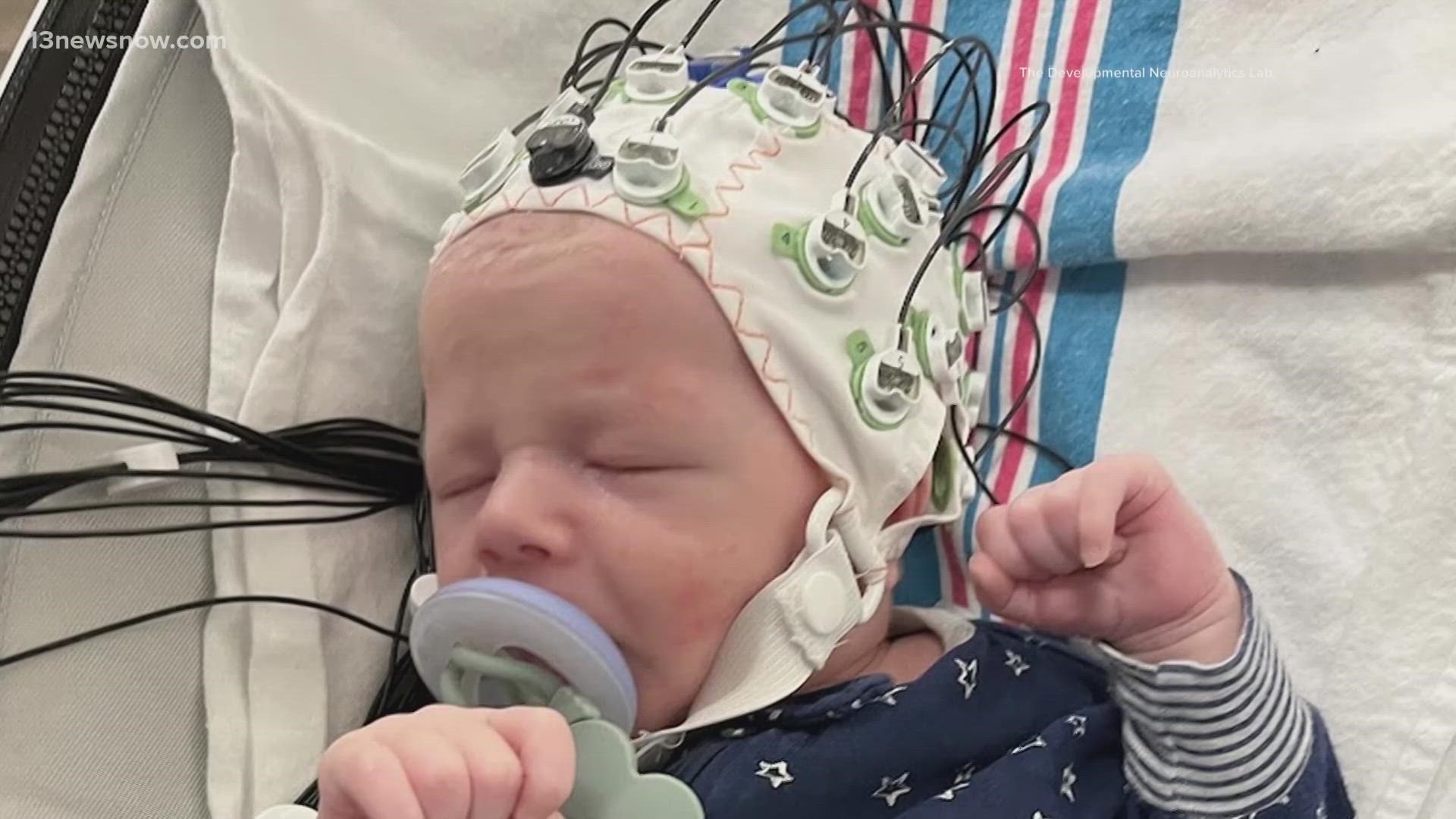CHESAPEAKE, Va. — Laura Hales is the mother of two boys, Noah and Leo. Both are on the autism spectrum.
"My youngest [Leo] was diagnosed when he was three-and-a-half," Hales said. "My oldest son, Noah, was five."
Hales is now a children's book author and autism awareness advocate. She said her family has learned a lot about the autism spectrum disorder since her sons were diagnosed.
"We knew who to contact. We knew not to waste any time," Hales said. "We knew to be very persistent with physicians, with therapies, and getting everybody involved."
But knowing they were on the spectrum even sooner, Hales said, could have made a major difference for her boys and her family.
"There's so many steps to getting your child diagnosed. And a lot of that is getting the appropriate people who can do the diagnosis to believe you." Hales said. "It would have really helped as far as legitimizing our concerns."
That may be possible for families in the future, thanks to a current study called Epigenetic Influences on Social Brain Development. The study is led by neurologist Meghan Puglia at the University of Virginia.
"Autism currently can't be diagnosed reliably until, at the very earliest, 18 months of age," Dr. Puglia said. "But typically, it happens closer to two or, even average in the United States is five years of age."
Before newborns can leave the hospital for home, they must undergo a series of tests, including hearing exams and metabolic screenings.
However, Dr. Puglia said "there is currently no testing that happens at the newborn stage, or even the first year of life" for autism, even though the CDC reports about one in 44 children are on the spectrum.
"We really are missing out on the opportunity to potentially intervene," Dr. Puglia said.
In UVA's Developmental Neuroanalytics Lab, Dr. Puglia and her team perform various tests with babies born full-term and with no family history of neurodevelopmental disorder.
After a spit sample is taken from the baby, their brain activity is then measured through sensors embedded in a tiny cap... effectively, an EEG. Scientists show lights, play sounds, and perform other activities. The sensors in the cap then record reactions in the baby's brain.
"As the brain is getting input, that's what kind of helps it develop in that way that it's going to develop," Dr. Puglia said.
The goal of the study is to find markers in the brain that could indicate autism, leading to an earlier diagnosis.
A sister study at UVA's NICU is doing the same research on premature babies, born at less than 37 weeks gestation.
"Preterm birth is associated with a whole host of long-term consequences, including increased risk... for things like autism," Dr. Puglia said. "So, we are trying... to see what early markers might we have been able to identify that currently, we don't have to tools to do that."
Dr. Puglia said she hopes the data helps create new social development growth charts for children, and ultimately a first-of-its-kind universal autism test for newborns.
"The goal here is definitely not to cure autism, but to really just help everyone maximize their optimal outcome," Dr. Puglia said.
Hales shares in the hope for universal autism screening for newborns. Meanwhile, she said she will continue to celebrate her sons' differences and hopes others learn to embrace them, too.
"If I knew that my kids and other autistic individuals could live honestly and be accepted... I would be able to think about, you know, getting my kids more active and thriving instead of surviving," Hales said.
Babies can join the Epigenetic Influences on Brain Development study between birth and four months old. Their development is tracked until 16 months. Families must come to UVA for testing.

